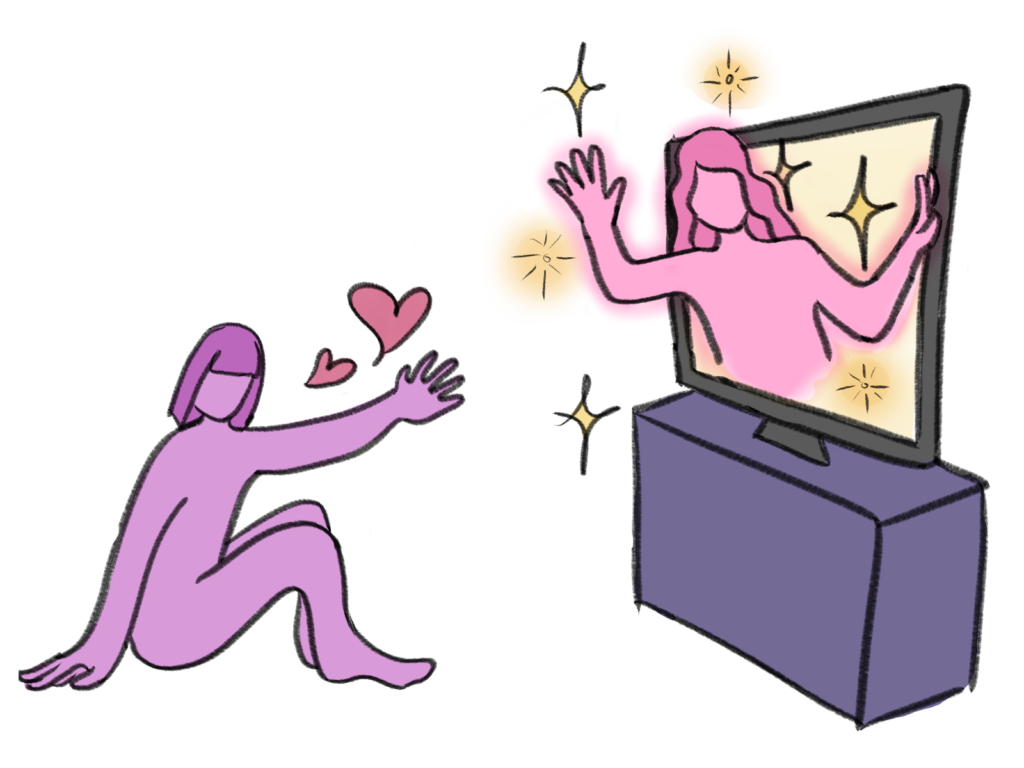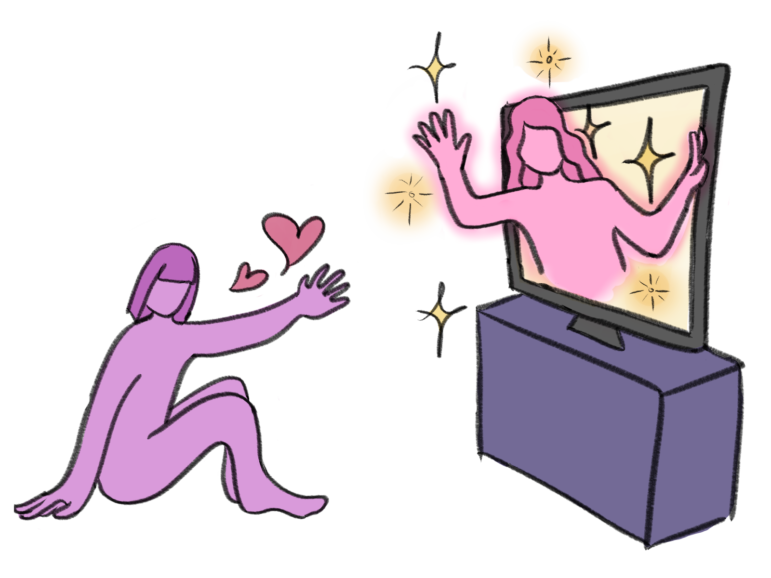
Whether daydreaming about a hallway crush, shedding a tear when a fictional character dies or getting upset when a player on television fumbles a play, parasocial relationships are prevalent amongst people with a variety of interests. Coined by sociologists Donald Horton and Richard Wohl in 1956, a parasocial relationship is a one-sided relationship in which a person expends time and energy worrying about someone who does not know they exist.
Though a relationship usually consists of two or more people who interact with one another, parasocial relationships do not require the two people to be in direct proximity to one another, making them unique.
We’re in isolation, but feel like they’re singing to us
“Most relationships have three components,” said Advanced Placement Psychology teacher Carlo Corti. “Our physical closeness, … the similarities we share [and] self-disclosure [which is when] we share details of ourselves, sometimes intimate, with other people. When I think of parasocial relationships, I think of … self disclosure … [A musician] can share intimate details of their life, their struggles [and] their difficulties. Sometimes we connect to that. We’re listening to their music on a walk. We’re in isolation, [but] … we constantly feel like they’re singing to us … You feel like this person just shared something really close to you.”
For some, parasocial relationships may feel intimidating, due to one party idolizing the other.
“[Meeting Taylor Swift] is my lifetime dream,” said sophomore Lindsay Schumaker. “If I met her I’d love to tell her everything she … and her music means to me, but I do imagine I would be at a loss of words. I have a Notes page of what I would say to her.”
Although parasocial relationships are one-sided, mutual interest in a particular person can jumpstart a new relationship or reinforce existing ones.
“Ever since I was young I listened to One Direction,” said sophomore Ella Palmisano Salgado. “My older sister was obsessed with them … We would always talk about [them] or watch their old music videos.”
For many, being part of a fandom is about bonding with friends.
“Usually there’s so much going on in our day-to-day life that people get into shows and books and things like that to escape reality,” said sophomore Lola Figueroa. “One of those ways to escape reality is to talk about random things with other random people and have a shared, happy experience. We’re all doing the equivalent of getting two dolls and smooshing their faces together … A lot of people see it as weird or strange to fangirl over fictional characters … but that’s kind of what makes it enjoyable — letting go of societal expectations and just having fun.”
We’re all doing the equivalent of getting two dolls and smooshing their faces together
Parasocial relationships can strengthen through people’s shared identity with others idolizing the same figure.
“If you’re a Swiftie you … usually would [share] some values like kindness,” Schumaker said. “[These values] are so important in the community that I think that we all share [them], or try our best to.”
Many fans find solace in these communities.
“Aside from their music, the community that [Korean pop groups have] made is really strong,” said freshman Mina Hwang. “When you go to concerts, the audience is like a family. They’re engaged in their community. The artists play a huge role in nurturing that safe space.”
At the same time, parasocial relationships can become unhealthy when one relies too much on them.
“It’s perfectly normal to have parasocial relationships, [but] when those are your only relationships or your best relationships, you want to step back and assess, …’What am I getting out of this and can I get it out of my other relationships?’” Corti said. “‘Is there something missing in those places that I’m getting here? And how do I get it in real life?’ … [Parasocial relationships are] negative when [they’re] the only relationships you have. [They’re] negative when you’re believing something that isn’t true about the relationship.”
Some celebrities, such as K-pop idols, tend to capitalize on fans’ romantic fantasies.
“This type of entertainment is targeted towards those who are … single,” said junior Anthony Lu. “[The singers] are [portrayed] as boyfriend or girlfriend material and a lot of people feel a connection with them through their reality shows and their performances [where] they have this kind of dynamic.”
Parasocial relationships can devolve from a positive experience into a negative, consuming one.
“Somebody who is more invested into [K-pop] would definitely have a lot harder time disconnecting from [it] because … they use [K-pop] as an escape from their own lives,” Lu said. “It’s really hard to get back into your own because you have this fantasized life that is more perfect.”
Freshman Anjalika Khare cautions against getting emotionally attached to fictional characters from TV shows, movies, or books.
“I know people who are genuinely affected by the fact that [a Jujutsu Kaisen] character just died and they become really, really sad,” Khare said. “If it’s getting to that point, it’s something that should be addressed, but if it doesn’t seem to be damaging them as a person, it’s fine. [Parasocial relationships are] a spectrum.”
Parasocial relationships have the ability to expand or narrow a person’s social growth and elevate or deflate a person’s emotional wellbeing. Although they are by definition imaginary, they leave a tangible impact in the modern world.




